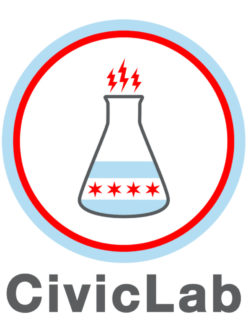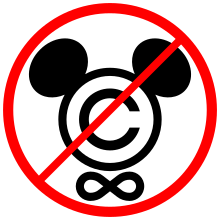DFEX: CHI is off and running! In our first week we engaged with three videos that laid the groundwork for understanding the current design and technology environment we live in.
The first was a TED talk by Lawrence Lessig in which he discussed the ecology of creativity that fair use can either constrain or allow to flourish. Interestingly, he identifies this as an area where conservatives and liberals are on the opposite sides of the issue as you’d expect. Using Disney as an example, he notes that when Disney was run by Walt Disney (a republican) it made extensive use of the public domain works of The Brothers Grimm. Yet, when under the helm of Michael Eisner (a democrat) Disney lobbied hard (and successfully) for the adoption of the Copyright Extension Act which extended copyright to the life of the author plus 70 years. Lessig points out the glaring hypocrisy; by instituting this law, Disney made it impossible for anyone to do to Disney, what Disney did to The Brothers Grimm.
Next we turned to a talk by Yochai Benkler in which he discussed a significant shift in economics; social production. Examples of this can be found in projects such as SETI’s @Home program which uses peoples’ individual computers to analyze data SETI has collected. Instead of viewing a separation between the Industrial Age and the Information Age, Benkler re-frames the conversation by stating that we have always been in the Information Age, it’s just that the means of disseminating the information was industrial. As such, it required a very high level of capital investment to distribute knowledge and culture (newspapers, for example) but today, these instruments are in the hands of average people. As such, Benkler notes that in addition to corporations (market-based and centralized) and non-profits (non-market based and centralized), we have a new transactional framework, social production, which is both non-market based, and decentralized.
Finally we explored the power of information and coordinated action in the hands of average people in a talk by Clay Shirky. As an example, Shirky notes an experience with the bank HSBC in which they had promised students checking accounts with out penalty fees for overdrafts. A short while later, they changed their position and said that these accounts would now incur a substantial fee. Students could avoid this fee by switching to a different account, but it was a rather complex and time consuming process. In previous times, people would have been helpless against this because institutions had two major advantages. 1) They had the means of knowledge, in this case the complicated process of switching, and 2) the means of coordination (eg the actual mechanisms for putting the policy in place). But today it’s different. Using Facebook, students set up a page to teach people how to switch (information) and circumvented geographical boundaries to organize a protest (coordination). HSBC soon backed down.


